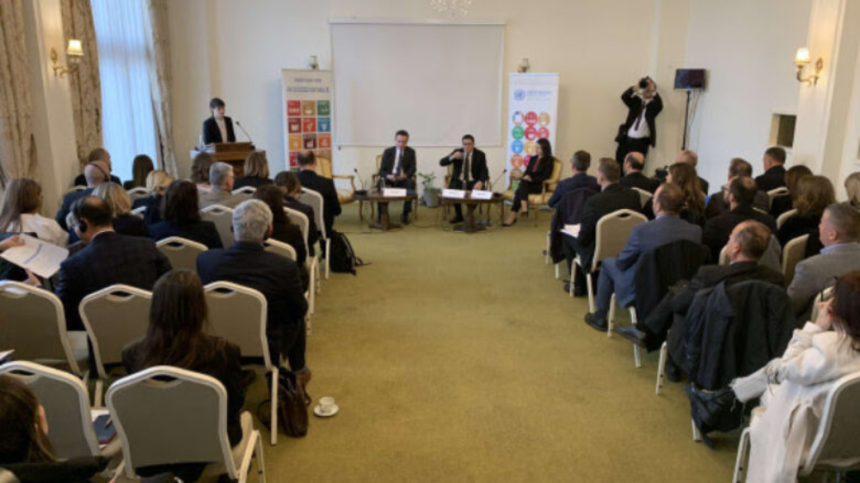Kosovo’s Prime Minister, Albin Kurti, emphasized the importance of an independent and professional judiciary and an honest and active prosecution, stressing that corruption is no longer among the government’s biggest challenges. Kurti made these statements at the Regional Conference “Best Practices for Preventing Corruption – From Policy to Regional Action,” organized by the United Nations Development Programme (UNDP).
During the conference, Kurti highlighted that the endemic corruption, which had infiltrated public institutions during previous administrations, has been halted under his government. He declared that the “dark era” of corruption in Kosovo has ended.
“This era will not return. Corruption is no longer listed as one of the major problems of governance. We have liberated the northern region from criminal gangs financed and directed by the Serbian government. The terror over citizens has ended, and we’ve opened the region for economic development with new business opportunities,” said Kurti.
Anti-Corruption Strategy and Accountability Measures
Kurti announced that by the end of the year, Kosovo would implement a comprehensive Anti-Corruption Strategy, which includes initiatives for digitalization to promote transparency and accountability.
“Digitalization ensures transparency of processes and accountability of officials while also enhancing service quality. This will lead to objective systems where similar offenses in similar contexts receive fair and consistent judgments. With the approval of the national anti-corruption strategy, we will undertake fundamental reforms in the judiciary and public procurement,” Kurti added.
However, he expressed dissatisfaction with the performance of Kosovo’s prosecutorial and judicial systems, which he claimed have not kept pace with governmental reforms. “We still face ineffective investigations, weak indictments, acquittals for criminals, and lenient sentences for perpetrators. We desire an independent and professional judiciary, but independence should not mean a lack of accountability,” he emphasized.
Progress in Albania’s Fight Against Corruption
The Minister of State for Public Administration and Anti-Corruption in Albania, Adea Pirdeni, discussed her government’s ongoing efforts, citing the success of the judicial reform launched nine years ago. She credited the creation of the Special Anti-Corruption Structure (SPAK) for delivering tangible results.
“This judicial reform has laid the foundation for an independent judiciary in Albania. Since its inception in 2019, SPAK has achieved a significant track record in combating corruption and organized crime. The notion of impunity is now shattered,” Pirdeni said.
UNDP’s Stance on Corruption
Acting United Nations Development Coordinator, Nuno Queiros, reaffirmed the UN’s commitment to fighting corruption, noting that it hinders peace, security, and sustainable development. “Corruption is a barrier to achieving our shared goals. The UN has made it clear that without successfully combating corruption, we cannot meet our objectives for global development,” Queiros stated.







